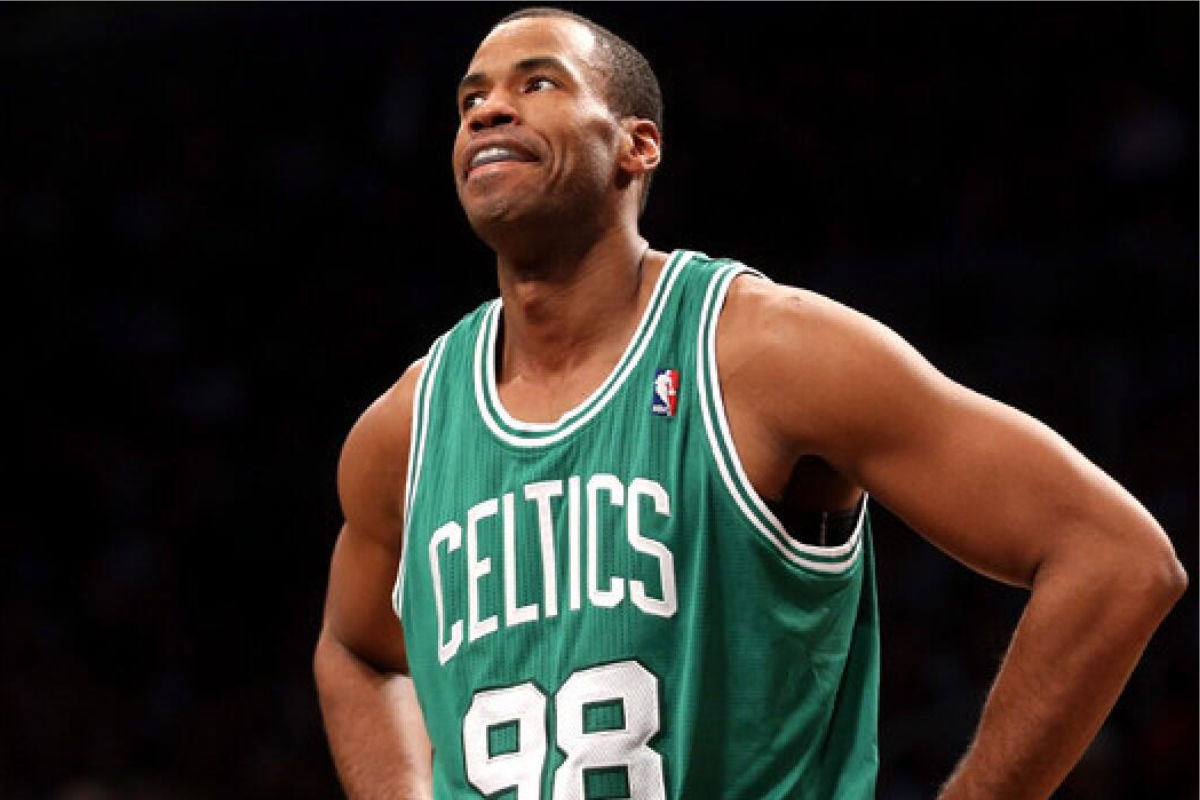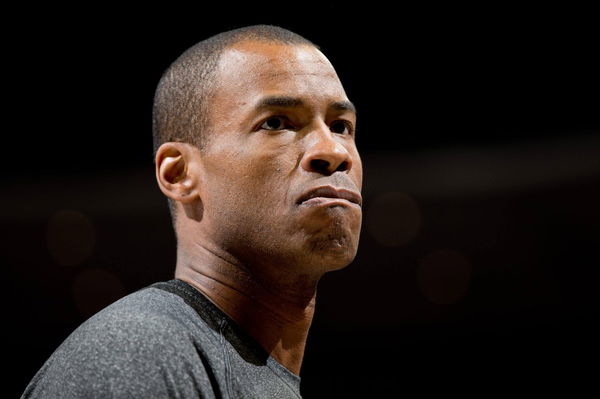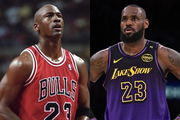
Imago
Jason Collins

Imago
Jason Collins
Jason Collins’ story has been tied to some of the biggest milestones in NBA history, despite a number of players returning with betters NBA careers. A 7-foot center out of Stanford, he was drafted 18th overall in 2001 and went on to play 13 years in the league, logging 735 career games with stints in New Jersey, Atlanta, Boston, Washington, Memphis, Minnesota, and Brooklyn. But beyond the stats, Collins made history in 2013 when he came out publicly as gay through Sports Illustrated, becoming the first active male athlete in one of the four major U.S. team sports to do so.
Watch What’s Trending Now!
Since stepping away from the court in 2014, Collins has remained closely connected to the league as an NBA Ambassador, regularly appearing at community events and pushing conversations around diversity and inclusion in sports. Earlier this year, he married his longtime partner, film producer Brunson Green, capping off a decade of public advocacy since his groundbreaking announcement. On Thursday, however, the NBA issued an update that shifted attention from his legacy back to his health.
The news broke when @NBA PR posted an official statement on social media: “NBA Ambassador and 13-year NBA veteran Jason Collins is currently undergoing treatment for a brain tumor. Jason and his family welcome your support and prayers and kindly ask for privacy as they dedicate their attention to Jason’s health and well-being”. The announcement confirmed that Collins, now 46, is receiving treatment for the tumor, with his family emphasizing the importance of privacy as they focus on his recovery.
ADVERTISEMENT
The following statement was issued today on behalf of Jason Collins and his family: pic.twitter.com/36lKwB7NiR
— NBA Communications (@NBAPR) September 11, 2025
Collins’ medical update comes more than a decade after his barrier-breaking role in the league. During his final stretch as a player, he signed with the Brooklyn Nets in 2014 and chose to wear No. 98 to honor Matthew Shepard, a University of Wyoming student whose 1998 murder became a landmark moment in the fight against anti-LGBTQ hate crimes. That jersey was later enshrined in the Smithsonian Institution. Beyond symbolism, Collins had carved out a steady NBA career, averaging 3.6 points and 3.7 rebounds per game. He was also a two-time NBA Finals participant with the Nets in 2002 and 2003.
Even after retirement, Collins kept pushing for more visibility. In a 2023 interview with The Athletic, he said, “We need more and more male athletes to step forward so that we can get to that day when, after the game is over, everyone’s significant other is in the family room waiting for them along with everybody else’s, regardless of gender”. That perspective made his presence in the NBA community larger than his on-court role ever was. News of his health struggle instantly drew attention, but also messages of solidarity, including a post from the Brooklyn Nets reading: “Sending our love and support to @jasoncollins98 and his family”. With the story now out in public, fans quickly flooded the NBA PR statement with their own words.
ADVERTISEMENT
What the fans had to say
Many fans chose simple, heartfelt messages of encouragement. One user commented, “I hope the treatment goes well. Get well soon, Jason”. Messages like these reflected the most common reaction: concern for Collins’ health and a desire to see him recover fully. Another echoed the same supportive tone, writing, “Sending positive vibes and prayers your way, Jason. ❤”. Together, they captured how fans often rally around players in difficult times, regardless of team or background.
ADVERTISEMENT

ADVERTISEMENT
Other responses carried a heavier emotional note. A fan posted, “That’s devastating to read. All the best to Collins and his medical team”. For many, the word “devastating” summed up the sudden nature of the announcement, especially for someone who has remained visible in league programs and advocacy work. At the same time, not every comment was focused on support. One user struck a skeptical tone, saying, “Like the NBA actually cares they 🤷♂️ are just trying to take the heat off of silver for talking shit and calling the fan base poor 🖕”. That reaction hinted at how league statements, even during moments of real concern, can be viewed by some fans through the lens of league politics.
The broader discussion also touched on the way tragedies overlap in the public space. One comment read, “@NBAPR @NBA no statement about Irina Zarutska ? Or Charlie Kirk ? 👀 No nothing ? … Alright 🤔”. By bringing up recent violent incidents involving Charlie Kirk‘s assassination and incidents with figures outside basketball, the user questioned why the NBA chose to highlight Collins’ health while remaining silent on other matters.
Top Stories
Brittney Griner Claps Back at ‘Dirty Player’ Claims After Controversial Aliyah Boston Incident

Alyssa Thomas Under Fire After WNBA Fans Call Out Controversial Play vs Paige Bueckers

Lakers Legend Slams LeBron James for Disrespecting Michael Jordan’s Era

Joe Lacob Under Fire for Refusing to Credit Steph Curry in $10.5 Billion Warriors Fortune

WNBA Fans Can’t Stop Bringing Up Michael Jordan After Caitlin Clark’s NBC Announcement

Yet, those points did not take away from the main theme of the responses. The dominant fan sentiment still circled back to Collins himself, with another user once again offering, “Get well soon, Jason”.
ADVERTISEMENT
ADVERTISEMENT
ADVERTISEMENT
ADVERTISEMENT